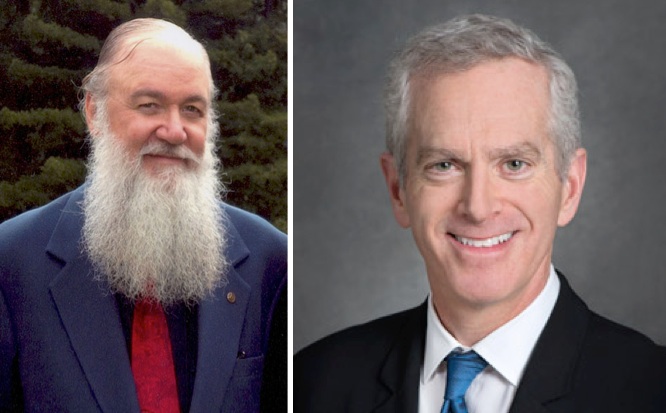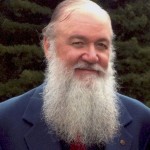Energy Secretary Ernest Moniz has awarded Berkeley Lab’s Bill Collins and the software team that developed OSCARS, led by Bill Johnston, with DOE Secretarial Honor Awards, which are the department’s highest form of non-monetary employee recognition.
Collins, who is head of the Climate Sciences Department in Berkeley Lab’s Earth Sciences Division, was recognized for his leadership of the Accelerated Climate Modeling for Energy (ACME) project. ACME is intended to accelerate the development and application of fully coupled, state-of-the-science Earth-system models for scientific and energy applications. Collins shares the award with David Bader of Lawrence Livermore National Laboratory and Mark Taylor of Sandia National Laboratory.
Bill Johnston and six other members of DOE’s Energy Sciences Network, or ESnet, which is located at Berkeley Lab, were recognized for the development of OSCARS, the On-demand Secure Circuits and Reservation System. OSCARS is a software service that creates dedicated bandwidth channels for scientists who need to move massive, time-critical data sets around the world. Other team members include Evangelos Chaniotakis, Chin Guok, Andrew Lake, Inder Monga, Eric Pouyoul, and Mary Thompson.
DOE Secretarial Honor Awards are bestowed on a group or team of employees who accomplished significant achievements on behalf of the department. The awards are designed to recognize the career service and contributions of DOE employees to the mission of the department and to the benefit of the nation. Individual and team awardees are selected by the Secretary of Energy.
About ACME
Launched in July 2014, ACME is a multi-institutional effort involving eight DOE national labs, the National Center for Atmospheric Research, four academic institutions and one private-sector company. ACME is intended to accelerate the development and application of fully coupled, state-of-the-science Earth-system models for scientific and energy applications.
The plan is to exploit advanced software and next-generation high-performance computing (HPC) architectures as they become available at DOE Leadership Computing Facilities. ACME’s initial focus will be on three climate change science drivers and corresponding questions to be answered during the project’s initial phase. These include water cycle, biogeochemistry, and cryosphere systems.
The three awardees constitute the executive council of the ACME management structure: Bader, LLNL’s climate program leader, is the chair of the council; Collins is the chief scientist; and Taylor is the chief computational scientist.
About OSCARS
ESnet’s OSCARS software creates dedicated bandwidth channels for scientists who need to transmit massive, time-critical data sets that are vital to DOE’s science mission. OSCARS circuits support most Office of Science program areas, and provide DOE with high-bandwidth ‘network fast lanes’ that guarantee end-to-end network data transfer performance critical to climate research, genomics, particle physics and cosmology, basic energy science, fusion, and many other fields.
“This is a tremendous honor for the ESnet team and we’re gratified by the Secretary’s recognition of the important role networking plays in scientific discovery,” said ESnet Director Greg Bell.
Before OSCARS, which is now used in 50 networks and campuses, building dedicated circuits was a time consuming process. In 2010, for example, ESnet engineers needed 10 hours of phone calls and about 100 emails over three months to do what one person can do in five minutes using OSCARS today. The automation of this complex process makes it possible for network engineers around the world to work more efficiently and productively.
Secretary Moniz presented the 2015 DOE Secretarial Honor Awards during a special program held May 8 at DOE headquarters in Washington, D.C.


